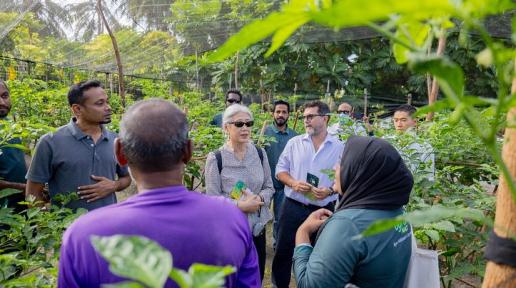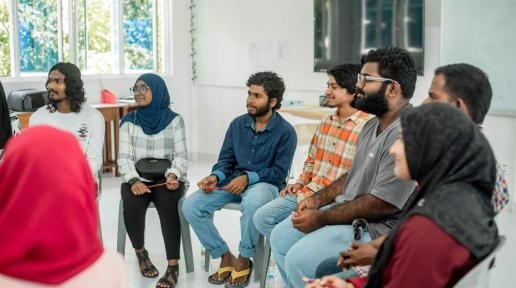Story
30 July 2025
Advancing Social Justice and Promoting Decent Work: ILO-Supported first Labour Force Survey in the Maldives
The Maldives, as a small island developing state (SIDS) with GDP per capita reaching approximately USD 12,000 in 2025 has made notable socio-economic progress throughout few decades. This growth, however, is juxtaposed with significant economic vulnerabilities, particularly due to the country’s heavy reliance on the tourism and service sectors, which account for over 70% of GDP and 90% of exports while the COVID-19 pandemic posed significant challenges, causing a sharp GDP contraction of 32% in 2020. The economic vulnerabilites also served as a catalyst, emphasizing the importance of economic diversification, productivity enhancement, and building a more inclusive and resilient workforce capable of adapting to future changes.The Maldivian labour market presents a dynamic mix of steady participation rates alongside areas of opportunity for growth and inclusion. As of 2023, the labour force participation rate among individuals aged 15 and above stood at a stable 63.8 %, reflecting a solid core labour market. However, a deeper look reveals promising opportunities to better engage youth and women, as youth labour force participation is at 47.7%, with a noticeable gender gap: 54.8% of males are active compared to 39.9% of females. While the overall unemployment rate was modest 4.6% in 2024, youth unemployment is at 16.1%, highlighting the potential for targeted strategies to support young people entering the workforce. In response to the need for comprehensive and timely labour market insights, the Maldives Bureau of Statistics (MBS), in partnership with the International Labour Organization (ILO), launched a first standalone national Labour Force Survey (LFS) in 2024. This initiative aims to provide reliable, detailed data on employment trends, skill levels, sectoral participation, underemployment, and informality aligning with the latest statistical standards. Such data are essential for crafting evidence-based policies that address skills gaps, boost vocational and technical training, reduce reliance on foreign labour, and enhance the integration of women and youth into the formal economy.Data collection for the LFS commenced in late 2024, with interviews conducted across key population centers, including the Greater Malé Region, throughout the second quarter of 2025. This survey forms part of the broader ILO’s Decent Work Agenda, which aim to strengthens national statistical systems and supports sustainable development planning in the Maldives. Beyond its technical merits, the LFS stands as a vital strategic tool that will empower policymakers to develop evidence based, responsive, inclusive employment strategies to tackle the labour market anomalies in the Maldives. Ultimately, the survey will contribute to build a stronger, more equitable labour market, one that not only meets the aspirations of Maldivians but also positions the country to thrive within the evolving global economy.








